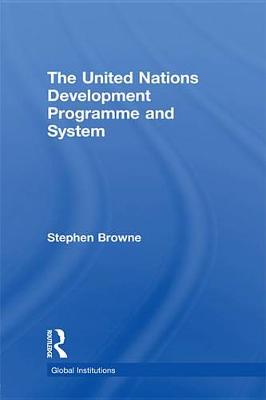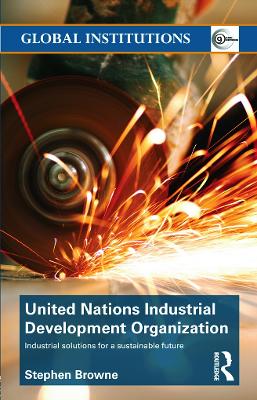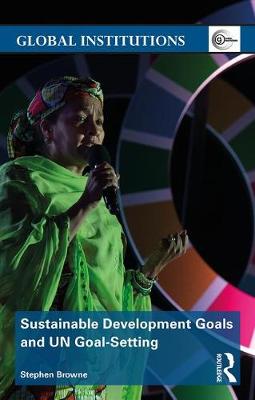Global Institutions
6 total works
- traces the origins and evolution of UNDP, outlining how a central UN funding mechanism and field network developed into a more comprehensive development agency
- evaluates the UNDP's performance and results, both in its role as system coordinator and as a development organization in its own right
- considers the return of the UNDP to a more central role within the UN development system, in order to review the successive attempts at UN development system reform, the reasons for failure and the future possibilities for a more effective system with the UNDP at the centre.
Offering a clear, comprehensive overview and analysis of the organization, this work will be of great interest to students and scholars of development studies, international organizations and international relations.
The mandate of the United Nations Industrial Development Organization (UNIDO) is close to many of the core issues now confronting developing and transition economy countries, and this book offers the first concise and accessible guide to this important organization.
As the only UN organization to have been transformed from a UN secretariat entity to an independently governed UN agency, UNIDO has also an agency which has had to make drastic changes of focus and business practice in order to adjust to a changing environment. This book charts the complex origins and developments of the organization, and moves on to examine the current mandate of the agency, including trade capacity building, poverty reduction and Green Industry Initiative. It also examines the significant partnerships it has formed with other UN based systems such as UNCTAD and the ITC to achieve these goals.
In the era of rapid globalization, UNIDO faces growing challenges. In the second part of this work, Browne seeks to review these challenges, and UNIDO's recent reforms under its current management, and looks suggest how the organization can help to meet some of the key global development challenges in the increasingly competitive environment of development cooperation and private sector initiative.
This work will be a useful resource for all those with an interest in international organizations, international relations, development and trade, and international political economy.
In the era of rapid globalization, the ITC plays a significant and wide ranging role working with both governments and trade support institutions to nurture an export culture, this work will provide a much needed overview of this dynamic organization.
This book:
Details the history of the organization since its inception
Examines its current mandate and the impact of recent reforms
Analyses the ability of the ITC to provide trade intelligence, and its role in the development of national export strategies
Evaluates the future challenges, and emphasises that the ITC must continue to broaden its mandate and continue to be responsive and results orientated to remain a key player
The status of ITC - half-in and half-out of the UN - could prove to be an interesting model for the future, and this work will be of interest to not only to academics but also government trade specialists and negotiators, the "aid for trade" donors, NGOs, and those involved in the running of international organizations.
This book explores the record of the UN development system (UNDS) over more than 70 years as a fount of ideas and concepts in development; as a contributor to development thinking and strategy; and as the principal source of global development goals from the first UN Development Decade to the SDGs. It also examines the more mixed record of the UNDS in its operational role and asks how the ideational and operational functions can be more successfully aligned, and what changes such an alignment would imply.
The chapters consider:
- The logic of global governance through international organizations
- The origins, functions, structure of the UN development system
- UN contributions to development thinking
- The UN’s development agendas, 1960s to 2015
- Reforming the UN development system
- The future of the UN and multilateralism
The book will be of great use for students and scholars studying political science, international organizations, the UN, and development, as well as for practitioners associated with the UN, including member-state missions, UN staff, and development cooperation professionals.



